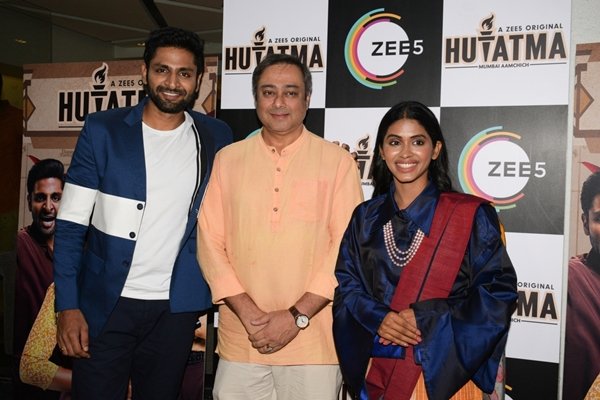Language won’t bar access to ‘Hutatma’: Director
Hutatma
Mumbai (IANS) – As the web series “Hutatma”, based on the Samyukta Maharashtra movement, is in Marathi, its director Jayprad Desai says he isn’t worried about the language limiting the audience from accessing the historical story because it lends authenticity.
“I am not disheartened that the language is going to limit the propagation of such content. Rather I think that if the choice of the language makes the content more authentic and strong, I am sure it will transcend the barriers of language. I would rather concentrate on making an authentic content than making it accessible to people by using a certain language,” Desai told IANS here.
The show has been dubbed in Hindi too and was released on May 1 on OTT platform ZEE5.
“The subject lent itself towards Marathi context. All the actors in the show are cultural icons of Maharashtra. The essence of the Samyukta Maharashtra movement and the struggle lend itself to Marathi language,” he said.
The story is based on the book “Hutatma”, set in 1960.
Samyukta Maharashtra movement was in support of carving out a separate state of Maharashtra with Mumbai as the capital from the erstwhile Bombay state. It came into being in 1956 after the legendary Marathi writer and orator Acharya P.K. Atre criticised the central government, then headed by Jawaharal Nehru, for not conceding the demand.
Sharing how he conceptualised the show, the maker said: “Well, the idea was to look at the matter in a comprehensive manner. We have shown both sides of the whole situation on why Marathi people fought so that Mumbai remains a part of Maharashtra.
“On the other hand, people who were in power in the central government, especially Nehru was against that idea. He wanted to keep Mumbai as a union territory like Delhi because Mumbai has always been the financial capital and inclusion of the city in Maharashtra was risky for business investors. So, the government has its own dilemma and reasons.
“This story offers a holistic view of the situation,” he added.
“Hutatma” features Anjali Patil, Vaibhav Tatwawaadi, Abhay Mahajan, Ashwini Kalsekar, Mohan Agashe and Sachin Khedekar.
While separate statehood is one of the political issues that India has dealt with after independence, Desai said: “The idea of one India and nationalism were born during the freedom movement led by Mahatma Gandhi. So, India was never monolithic that way and we came together for a cause.
“We united back in the day to stand against the British government, but later things have changed the way they were supposed to be because we are inherently different.”
Desai believes the idea has evolved though with time.
“Even in the present time, when there is any external aggression or say an election coming, we will come together as India. But otherwise, the reality is that India is a country with people of different identities… be it culture or religion, we are different,” he added.
–IANS
aru/rb/mr
Disclaimer: Validity of the above story is for 7 Days from original date of publishing. Source: AFP.


